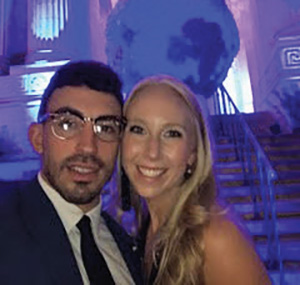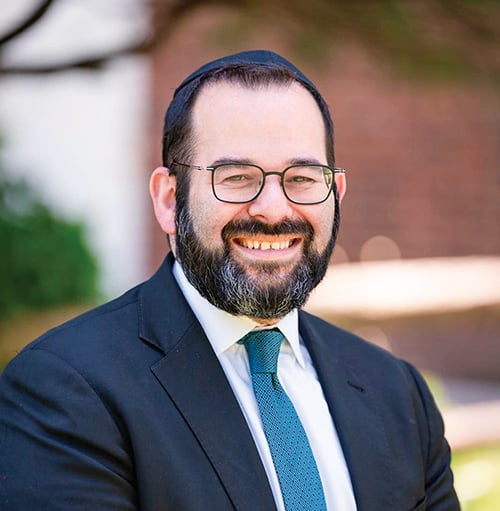
This month’s article is written by Benjamin Litchman.
Who would’ve thought? A nice Jewish boy caught up in the throes of addiction. Unheard of. When my teachers asked in Hebrew school what we planned to be when we grew up, I never imagined I would be struggling with a heroin addiction. When I was a bar mitzvah, never did I think I’d steal from both my parents’ peace of mind and pocketbooks. In the summers at Camp Young Judea, I never thought I’d trade a bunk bed in a cabin for a bunk bed in a jail cell. But it did happen. It happened to me. A nice Jewish boy from a nice Jewish family.
I had everything I needed to succeed. I knew right from wrong. My parents loved and supported me. I had good friends from good families. All signs pointed to Benjamin becoming the man everyone knew I could be. But it wasn’t that simple. It wasn’t black and white. I struggled to pay attention in class and acted out. I was full of energy and darkness. There was a void inside of me that was not being filled. A piece was missing and all the love and support around me was unable to fill it.
Through it all I found a solution. Alcohol and drugs settled me down in a way I hadn’t experienced before. I didn’t know why, but I felt content when I was seeking oblivion. I hid it from my family for a long time. I was able to turn it on and off. Through high school and the years following I could get high while maintaining some semblance of a life. That, however, did not last long. I eventually found a drug called heroin and my life spiraled into a nightmare I was unable to escape for almost a decade.
My parents went to see a play once being performed by recovering alcoholics and addicts. The play was called “Freedom Song,” and the cast were all members of a community from L.A. called Beit T’shuvah. My parents learned that this community was a drug rehabilitation center that was unlike any others I had participated in, and I had been to quite a few. They suggested I reach out to them and find out more about what Beit T’shuvah had to offer. At that time I had been thoroughly beaten several times and was ready for a big change. The trajectory of my life was heading straight to a long-term prison sentence or a box in the ground. I was desperate and knew this was not a lifestyle I could sustain much longer.
I spent some time researching Beit T’shuvah and was amazed before I was halfway through. They stated boldly, recover your passion, discover your purpose. I saw the smiling faces, I saw the diverse community, I marveled at the multifaceted approach to recovery and discovery of the authentic self. I didn’t feel I deserved much in life, but I knew I had to be a part of this amazing place. I reached out in an email and explained I was in NYC dying from my heroin addiction and needed help immediately.
The call came. I heard a voice on the other side of the phone that felt like the first breath of fresh air I could remember in a long time. We spoke for a while, and I was asked all the preliminary questions. I explained my desire and willingness to change, and how I felt it deep in my heart that Beit T’shuvah was the place for me. The only issue was I had no one willing to pay for me and couldn’t pay for myself. He told me to find a detox in New York and he’d be in touch. I found one and sure enough the next call came. He said get out here, we have a bed for you and it will be under our scholarship.
I found my way to L.A., walked up those front steps to Beit T’shuvah, entered the front doors and was introduced to the community that would save my life. The community became my mirror. They saw what I couldn’t see and challenged me every step of the way to join them in that vision. However painful it was, I was held up with love and compassion until I was able to stand on my own.
While at Beit T’shuvah I was given a treatment team that worked in concert to tackle my issues and provide a multi-dimensional treatment plan unique to my needs. It consisted of a clinical counselor, therapist and spiritual advisor, each with their own personal flair and chutzpah. It was a huge difference from the cookie-cutter approach I’d received at many of the rehabs I had previously attended. I felt seen, and in the words of Rabbi Mark Borovitz, I mattered!
Outside of my treatment plan and team I was able to get involved in a wide variety of extracurricular activities. I did improv acting classes, played music with the Shabbat band, performed in Freedom Song, climbed the tallest mountain in the lower 48 states, yoga, drum lessons, weight lifting, the list goes on and on.
Beit T’shuvah taught me how to find my passion and chase it with all my heart, in turn discovering my purpose. I was shown how to follow a 12-step program and integrate into my life using Jewish values and traditions. And most importantly, I was taught how to live every day as my authentic self, embracing the good and the bad. The yetzer hatov and the yetzer hara. I am far from perfect but I would not trade the life I’ve found for anything in this world. I walked into Beit T’shuvah a shadow of a man. My life beyond Beit T’Shuvah has been nothing shy of a miracle. I’m approaching three years of sobriety, enjoying having my family back, getting married in September to the love of my life and working as a musician. But the truth is all that is the cream on the top. The greatest miracle of all is waking up every morning with a true sense of peace and love for myself. I can now show up for Benjamin, my family, my friends and for another alcoholic and addict who is struggling. For that I am so grateful!!
This fall, a sister facility of Beit T’Shuvah, called The T’Shuvah Center will be opening in New York City. For more information, see www.Tshuvahcenter.com.
Since the passing of her son Eric by suicide in 2016, Eta Levenson and her family founded the Eric Eliezer Levenson Foundation for Hope to fight the stigmatization of mental illness, raise awareness about mental health challenges and help prevent suicide. She can be reached at [email protected].
Submitted By Eta Levenson and Lisa Lisser
Lisa Lisser is a freelance Jewish educator focused on adult Jewish learners. She is also a board member of The T’Shuvah Center, a residential addiction recovery facility that will be opening in New York City in the fall. The T’Shuvah Center offers a Jewish response to addiction. Lisa can be reached at [email protected].













